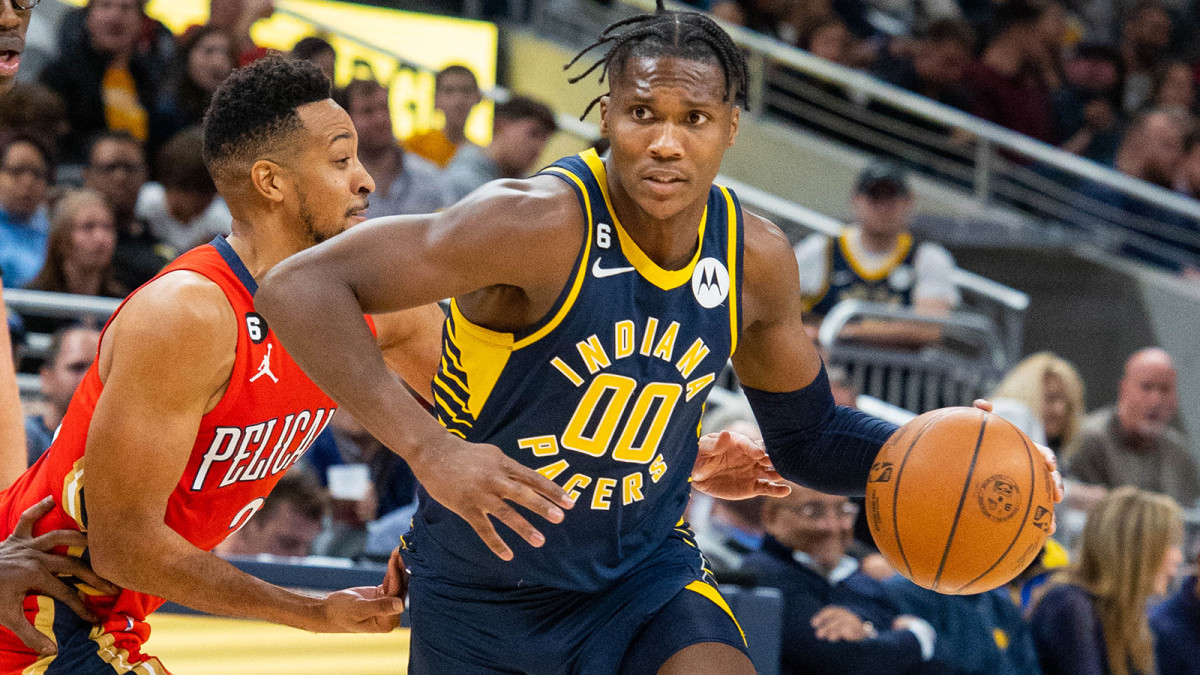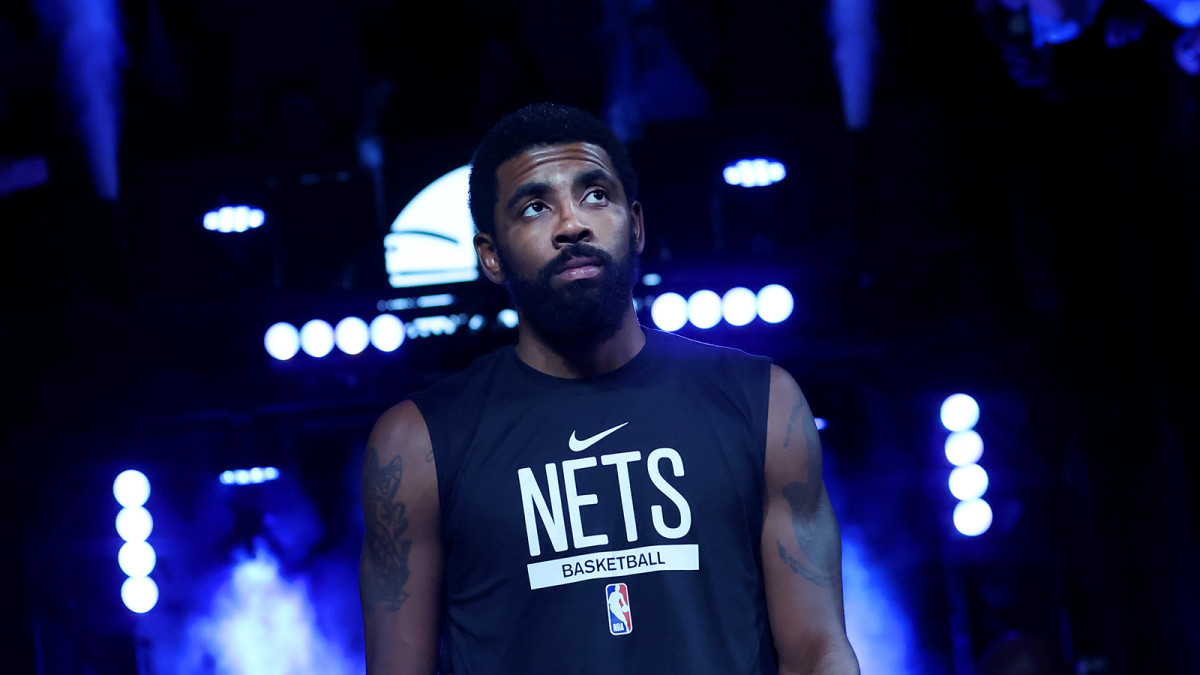What Happened to Tanking?
One of the players I’ve enjoyed most to begin the season is Pacers rookie Bennedict Mathurin.
He may not snag Rookie of the Year—barring injury, that seems likely to land with Orlando’s Paolo Banchero, and deservedly so—but Mathurin often looks beyond his years as a scorer.
The guard plays through contact in the paint and shoots better than 70% from inside of three feet. He’s a knockdown shooter who connects on better than 40% of his attempts from deep. That ability makes him even more decisive and aggressive in terms of getting downhill, as he uses shot fakes to blow by defenders that are desperately closing out on him along the perimeter.
Yet almost none of this was the case Monday against the Pelicans, a contest in which Mathurin logged eight points on 2-for-8 shooting, got stifled at the rim a couple times and more than once looked hesitant to pull the trigger despite having open looks.

Players, especially ones as young as Mathurin—who’s on an early pace to log the highest scoring average in NBA history for a season-long bench player—are allowed to have lackluster showings. But given what the expectations were for Indiana, an almost 20-point-per-game scorer struggling a bit would often be enough to do in a club like this on any given night.
Not on Monday, though. The Pacers, in command for virtually the entire second half, took down Zion Williamson and the full-strength Pelicans, moving to 5–5 on the season. Myles Turner—yes, the guy who still isn’t in a Lakers uniform—dropped 37 and 12 to go with three blocks, while immensely fun point guard Tyrese Haliburton hit six triples to log 20 points and 13 assists. One of those dimes was a lob to Mathurin, who then immediately returned the favor by assisting a Haliburton three on the following play during a whopping 42-point third period.
The game was a fun one that illuminated something that’s been fascinating to me thus far: A number of these teams that we expected to be tanking their butts off have been unexpectedly solid over the first three weeks of play.
In fact, of the five clubs who had the lowest over/under totals—San Antonio, Utah, Houston, Oklahoma City and Indiana—three are within a game of .500, or better, after essentially being pegged as clubs expected to win fewer than 30 times. The Jazz, after trading Rudy Gobert and Donovan Mitchell and accepting the resignation of respected coach Quin Snyder, are leading the West by a full game at the moment, with a 9–3 record bolstered by highly unselfish play whenever the game is on the line.
The Pacers have won four of their last five and feature a highly promising backcourt. At 5–6, the uptempo Spurs have to be thrilled with what they’re getting out of Keldon Johnson and Devin Vasell, who’s vastly improving as a playmaker. Even Oklahoma City, at 4–6, has been among the league’s best defenses to this point—impressive since the Thunder lost No. 2 overall pick Chet Holmgren and his never-ending arms for the season before the campaign even started.
All things considered, this is actually a hilarious juxtaposition: As eventual No. 1 pick Victor Wembanyama crosses defenders further into oblivion and hits ridiculous pull-up threes that double as runners, many of the teams that most people expected to be in the pole position to land him are actually winning at better clips than they were last season. At least for the moment.
It obviously wouldn’t require that massive a leap to imagine the Pacers eventually dealing away some of their floor spacers, especially if Turner has more dominant showings like Monday’s up his sleeve. And it’s hard to imagine other small-market clubs like the Jazz, Spurs and Thunder—ones that sort of have to build through the draft, given that they’re almost the opposite of free-agent destinations—even wanting to win at this level for too much longer, given how impactful the top pick could be this draft cycle. (There should be a betting line on whether we’ll see Shai Gilgeous-Alexander suiting up for games by the time the calendar hits April).
We’ll see how much longer it all lasts. And because of what many of us expected coming in, I’ll enjoy every moment that it continues. It’s fun to watch young, unburdened teams win.
Meat and potatoes: Good reads from SI and elsewhere this past week
Last week was an eventful one in the NBA for a number of the wrong reasons, but just in case you need to be caught up on how and why, we have you covered.

- Howard Beck wrote on the Brooklyn Nets, and why they’d be best burning it all down. The column came days after he wrote on Kyrie Irving, and why he’d lost the benefit of the doubt.
- Chris Mannix heard from sources that Ime Udoka was in advanced discussions to replace Steve Nash, a hire that would be sure to generate even more controversy in Brooklyn should it actually come to fruition.
- Rohan Nadkarni sounded off on the Nets having reached a new low. (He also wrote a timely piece on the defending-champion Warriors’ growing pains to this point in the season.)
- I wrote a column taking aim at NBA, which has had a brutal two months and hasn’t been anywhere near forceful enough in upholding the morals and values that so many of us have been accustomed to associating with it.
- My friend Candace Buckner had an excellent piece over at the Washington Post, calling out the league from top to bottom—players included—for acting as bystanders in the Irving saga.
- Melissa Rohlin over at Fox Sports had a worthwhile story on Zion Williamson, and how painful the barbs and constant discussion about his weight were as he rehabbed last season.
- James L. Edwards III at The Athletic had a smart piece on Cade Cunningham, observing how and why he could be a midrange heir apparent to DeMar DeRozan in Detroit.
Thanks for reading The Playmaker. Feel free to forward this email to a friend or tell them to sign up at SI.com/newsletters. If you have any specific questions, just reply to this email or send a note to nba@si.com and I may answer it in a future edition.
More NBA Coverage:
